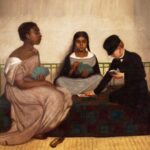Forschungsschwerpunkt Demokratie und Menschenrechte der Univ. Wien (Web)
Zeit: 29.01.2025, 18.30 Uhr
Ort: Inst. für Osteuropäische Geschichte, 1090 Wien – und virtueller Raum
Link zum virutellen Raum (Web)
Der Band „Demokratiegeschichte“ der Reihe „Historische Mitteilungen“ enthält die zu Artikeln ausgearbeiteten Vorträge aus der Veranstaltungsreihe zu „Demokratiegeschichte“. Herausgeber ist Wolfgang Schmale.
Programm (Web)
– Begrüßung: Christoph Augustynowicz und Tim Neu
– Einführung und Moderation: Wolfgang Schmale
Podium
– Ines Soldwisch: Demokratiegeschichte als europäische Integrationsgeschichte
– Julia Rüdiger: Demokratiegeschichte als Architekturgeschichte
– Christoph Augustynowicz: Demokratiegeschichte – Der nationale Rahmen (Polen)
– Kerstin S. Jobst: Demokratiegeschichte – Der Post-Imperiale Rahmen (Ukraine)
– Birgitta Bader-Zaar: Demokratiegeschichte dekonstruiert
– Tim Neu: Demokratiegeschichte rekursiv
Die Mitwirkenden
– Christoph Augustynowicz: Inst. für Osteuropäische Geschichte, Univ. Wien
– Birgitta Bader-Zaar: Inst. für Geschichte, Univ. Wien
– Kerstin S. Jobst: Inst. für Osteuropäische Geschichte, Univ. Wien
– Tim Neu: Inst. für Geschichte, Univ. Wien, Ko-Sprecher des Forschungsschwerpunkts Demokratie und Menschenrechte
– Julia Rüdiger: Inst. für Geschichte und Theorie der Architektur, Katholische Privat-Univ. Linz
– Wolfgang Schmale: Inst. für Geschichte, Univ. Wien
– Ines Soldwisch: Historisches Inst., RWTH Aachen
Historische Mitteilungen 34 (2023): Demokratiegeschichte, hg. von Wolfgang Schmale (Web) | Inhaltsverzeichnis (PDF)

 Project „Light On! Queer Literatures and Cultures under Socialism“, Univ. of Regensburg, Tatiana Klepikova
Project „Light On! Queer Literatures and Cultures under Socialism“, Univ. of Regensburg, Tatiana Klepikova  Global Black Thought
Global Black Thought  Abteilung Ariadne an der Österreichischen Nationalbibliothek (ÖNB)
Abteilung Ariadne an der Österreichischen Nationalbibliothek (ÖNB)  IPW-Lecture WiSe2024, Gender & Politics: Inst. für Politikwissenschaft, Univ. Wien, Lehrstuhl Geschlecht und Politik: Dorit Geva
IPW-Lecture WiSe2024, Gender & Politics: Inst. für Politikwissenschaft, Univ. Wien, Lehrstuhl Geschlecht und Politik: Dorit Geva  Webportal „Erinnerungsort Wien“; Bruno Kreisky Archiv und Johanna Dohnal Archiv
Webportal „Erinnerungsort Wien“; Bruno Kreisky Archiv und Johanna Dohnal Archiv